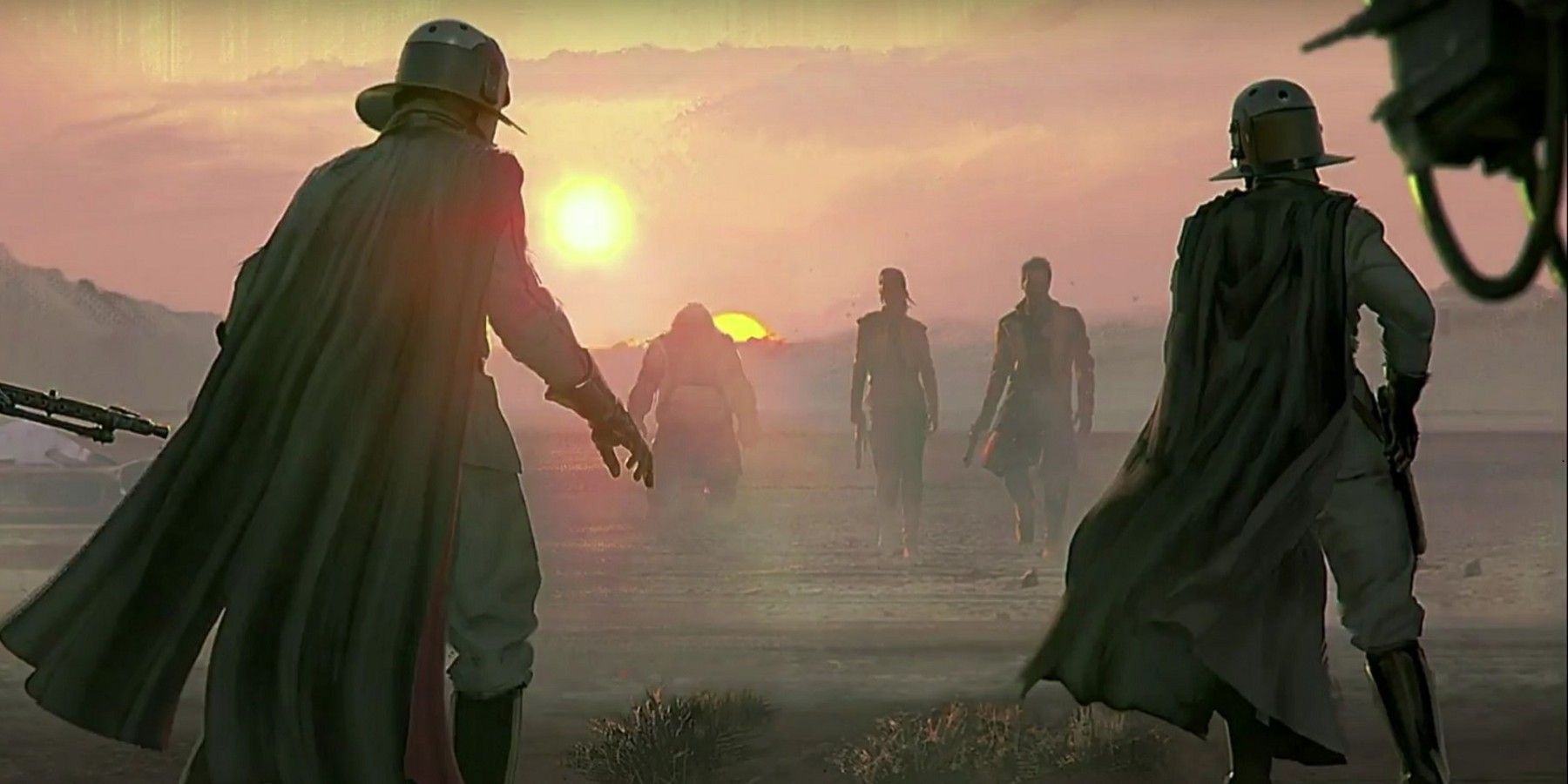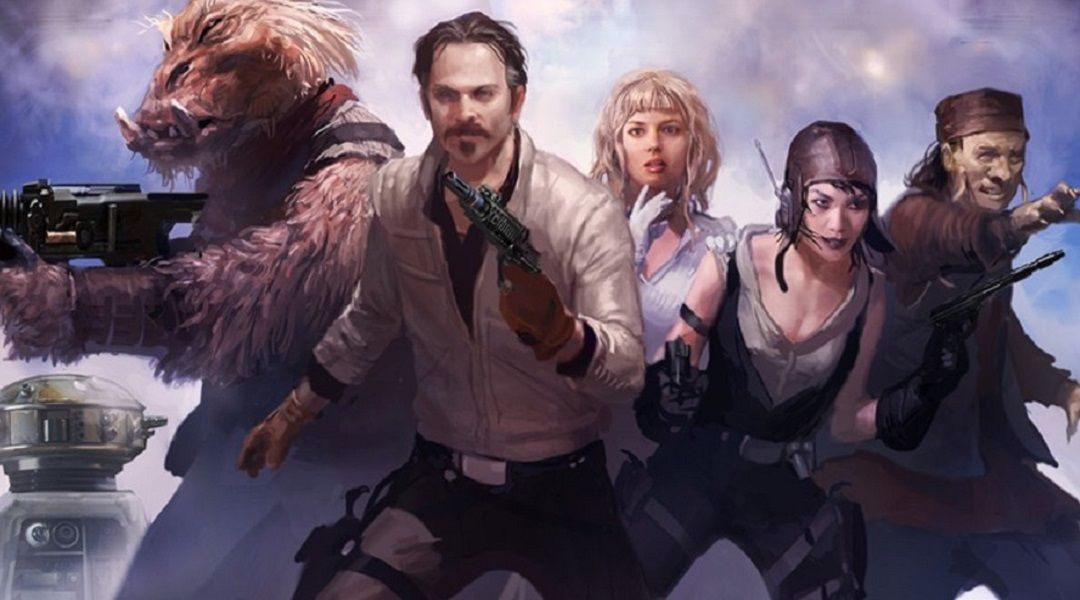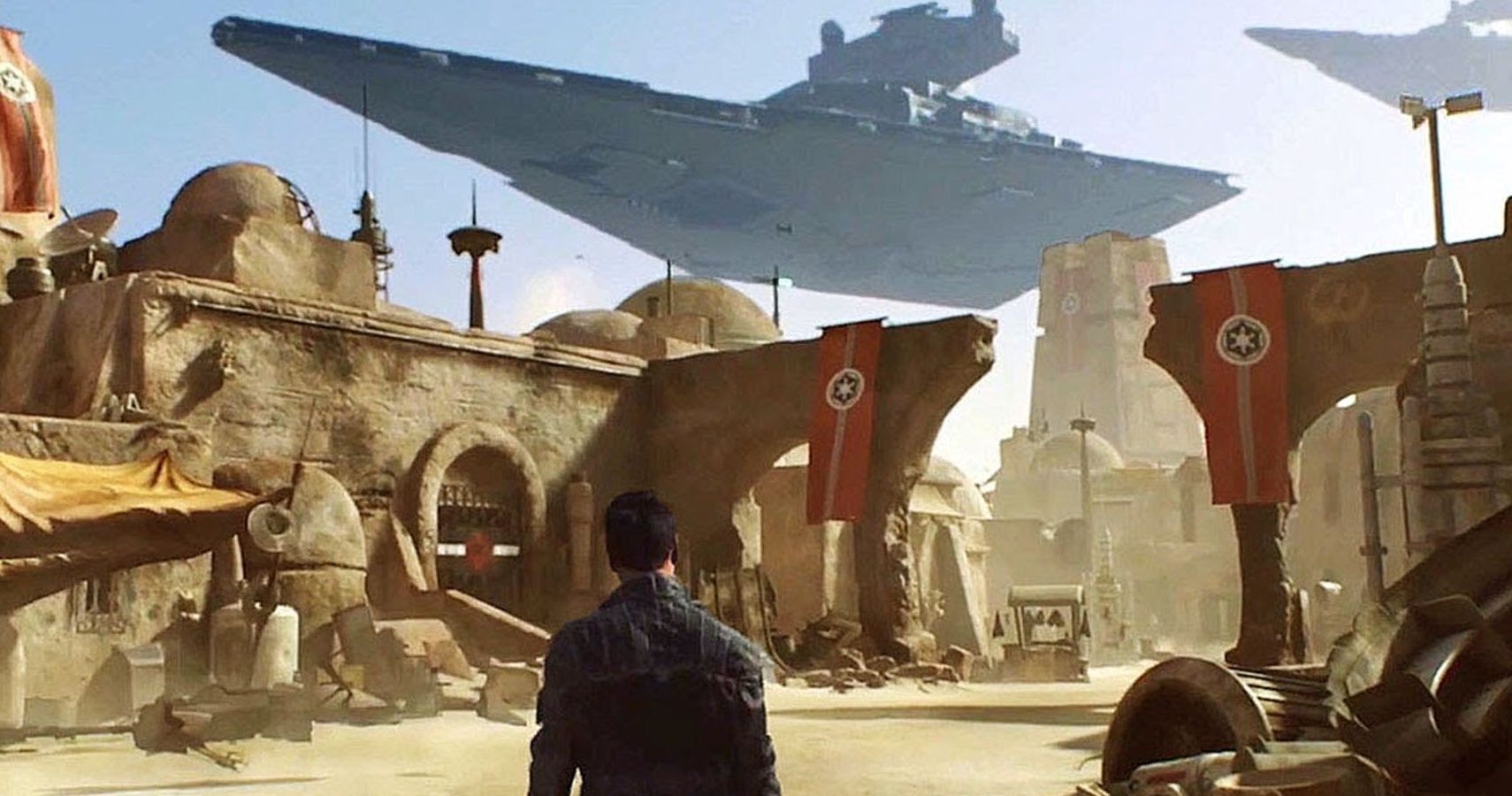In 2018, Amy Hennig, the creative director behind the first three Uncharted games, formed Skydance New Media; an offshoot of the movie production company that's designed to create new blockbuster interactive experiences based on popular IPs. At the end of last year, the developer announced that it's working on a new action-adventure game set within the Marvel universe. Just yesterday, Skydance New Media announced it's also working on a narrative-driven Star Wars game, marking Amy Hennig's second chance with the franchise.
When Amy Hennig left Naughty Dog in 2014, she made her way to the EA-led Visceral Games, the studio behind the Dead Space series. Development on a Star Wars action-adventure game had just begun, and Amy Hennig's expertise in this field was welcomed with open arms. However, it wouldn't end smoothly for the game or for the developer over time.
Project Ragtag's Troubled Development
Upon Disney's acquisition of Lucasfilm and the Star Wars license in 2013, the company made a deal with EA to develop a variety of console and mobile games based on the immensely popular franchise. EA immediately set Visceral Games the task of developing a bold, new Star Wars title.
At the time, Visceral was already hard at work on another project, "Jamaica," a pirate adventure title. EA shut down "Jamaica," making the developer to instead focus on a Star Wars title. Deciding to make the best of it, Visceral pitched a Star Wars game that focused on the universe's outlaws and scoundrels, thus keeping some spirit of its pirate-themed adventure intact.
Very early in development, Amy Hennig was brought on as creative lead for the project, and would also help to write the game's story. At this time, the game was nicknamed project "Yuma."
Later in 2014, Yuma's design team were pulled away from the project to focus on the upcoming Battlefield Hardline, which was facing some significant development troubles. When the team returned to work on Yuma full-time, Hennig put forward some alternate design concepts. As opposed to the vast open-world scope the team had originally wanted to go for, Hennig suggested making Yuma a strict, linear experience, much like the past games she had worked on.
In an effort to provide a brand new, but familiar-feeling Star Wars experience, Hennig proposed that the game focus in on a band of scoundrels as they attempt a massive heist in the aftermath of the first Death Star's destruction, just after Star Wars: A New Hope. The game would continue using a third-person perspective, with cover-based shooting still being a core feature. Switching between protagonists, much like Grand Theft Auto V's main story, would also be a big focus of the game, capturing the multiple plains of action that often occur in Star Wars.
With a more focused direction, the project was given a new name, "Ragtag," named after its main cast of scum and villainy. But despite having a clearer goal than ever, Visceral Games would soon run into a plethora of problems.
Project Ragtag's Tragic Cancelation
The first main issue with Ragtag's development involved the Frostbite Engine. Mainly designed for use with first-person shooters like Battlefield, the Frostbite Engine took a lot of constant tweaking to work with a third-person perspective. At the same time, Visceral would receive frequent contact with Disney and Lucasfilm, who were fairly strict on what assets the team could use.
Project Ragtag's development team only consisted of 30 members during the early stages of pre-production. To give the team more support, EA established Motive Studios in Montreal, which would add about 70 people to the Ragtag team.
Towards the second-half of 2015, a rift would begin between EA and Visceral. Along with the general pressure of creating a Star Wars game, Visceral were also told that the game needed to reach a certain Metacritic score in order to be deemed successful. On top of this, EA expressed concerns about the lack of recognizable Star Wars iconography, such as Force powers or lightsabers.
In November 2015, EA released Star Wars Battlefront, which despite reviews, sold extremely well. In response to Battlefront's success, EA pulled Motive Studios from project Ragtag, and tasked them with working alongside DICE on Star Wars Battlefront 2. A few months later, a good portion of Visceral's staff were laid off, leading to others jumping ship as well to find new positions.
With a drastically reduced team, Visceral set about creating a playable demo for project Ragtag, which would hopefully net them more funding and development time. Some very early concepts of this demo were then shown at E3 2016, including the now-infamous shot of the main character exiting out onto a dusty Tatooine street as a Star Destroyer enters atmosphere above.
Despite EA bringing on its Vancouver studio to assist with Ragtag's demo, Visceral had its suspicions that the game was all but doomed. In October 2017, Visceral presented its demo to EA. Despite showing off some Uncharted-like set pieces in which the main cast fled from a pursuing AT-ST, just a few days later, project Ragtag was canceled, and Visceral Games was shut down in its entirety.
The remnants of project Ragtag would then be placed in EA Vancouver's hands, where it would be reshaped to become a "broader experience." The wording of EA's statement lead many to believe that EA had canceled the linear, narrative-driven game in order for it to become a live-service experience, which the company had started to express significant interest in.
Taking a more open-world approach, EA Vancouver took the bones of Ragtag, and started anew. Renamed project "Orca," EA Vancouver's game would only have about a year in development before it, too, would be canceled. Assets were then shifted once more, this time into creating a Battlefront spin-off with open-world elements, once again helmed by EA Vancouver, and given the project name "Viking."
Project Viking would then be canceled in 2019, marking EA's third canceled Star Wars project in just a few years, and marking the final death of what was once project Ragtag. Hopefully, without EA's watchful eye, Amy Hennig's new Star Wars action-adventure game can actually make it to store shelves.



